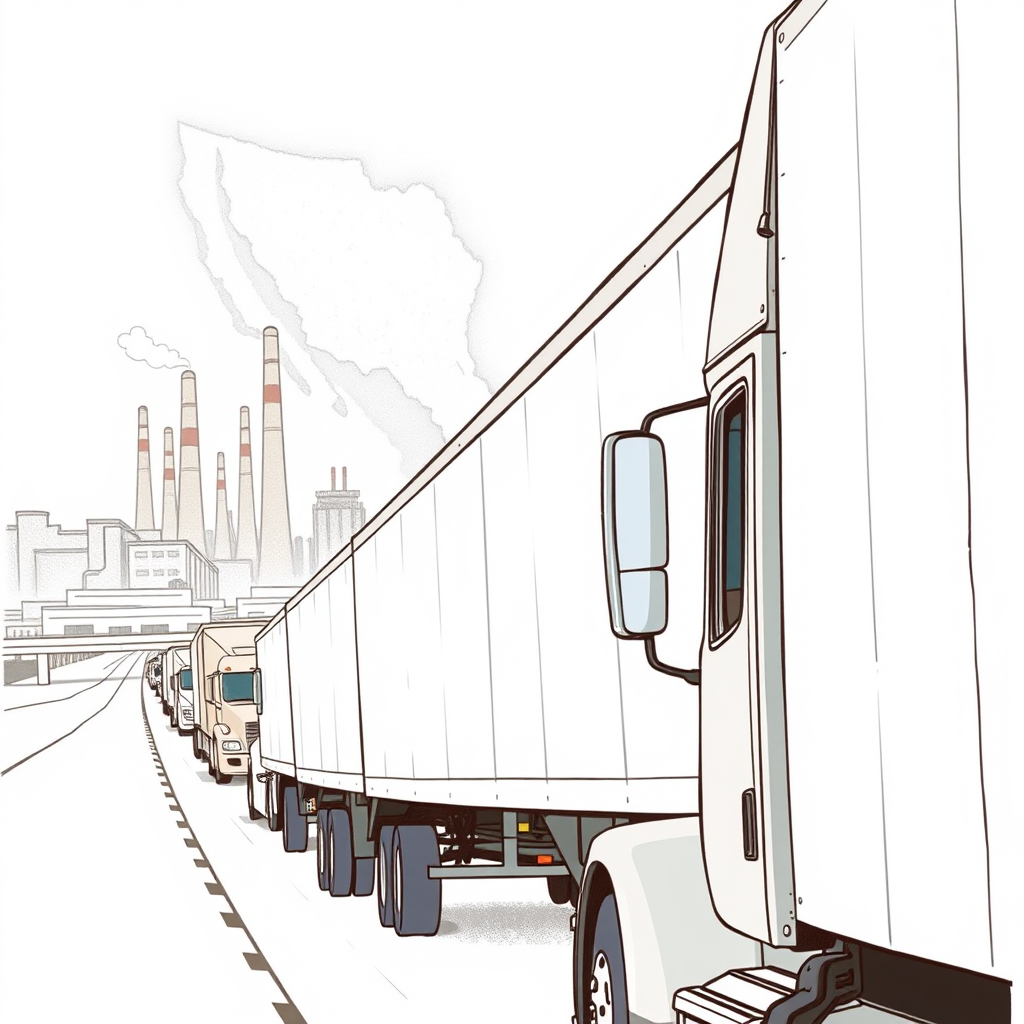Trump's Tariffs Spark Border Job Loss Fears

A sense of unease hangs heavy along the Mexico-US border following the implementation of tariffs championed by US President Donald Trump, a day some have dubbed “Liberation Day.” While the stated aim is to incentivize manufacturing relocation to the United States, the reality on the ground is mounting anxiety for Mexican workers and businesses reliant on cross-border trade.
Truck drivers, factory workers, and even small business owners express deep concerns about potential job losses and economic hardship. Raul Hernandez, a semi-trailer driver hauling Toyota pick-up trucks, worries that sweeping import duties will force manufacturers to move plants northward, leaving countless Mexicans unemployed. “A lot of people are going to lose their jobs here if he does that,” he said while waiting in a lengthy queue to cross into San Diego.
The northern industrial borderlands of Mexico, built on decades of tax breaks and free trade agreements, are particularly vulnerable. Cities like Tijuana are heavily dependent on factories and the transportation networks that support them. Omar Zepeda, another truck driver transporting Toyota vehicles, believes increased product costs due to tariffs will inevitably lead to reduced demand and fewer work opportunities. He points to the existing efficiency and lower labor costs as key reasons for the presence of these plants in Mexico.
The impact extends beyond factory floors and transport routes. Charito Moreno, who sells food to truckers near the border, reports a slowdown in business since the tariffs were introduced, with many workers taking time off. She fears widespread job losses would be “tragic for Tijuana,” urging both countries to reach a compromise. Even those involved in supporting industries, like Antonio Valdez, a driver transporting swimming pool parts, are feeling the strain, citing increased paperwork and delays at the border.
Mexican President Claudia Sheinbaum has announced plans for economic reforms to mitigate the effects of the tariffs, emphasizing the need to strengthen the Mexican economy. However, some, like trucker Alejandro Espinoza, advocate for a more assertive response, suggesting Mexico could retaliate by restricting exports to the US.
The situation highlights the complex interconnectedness of the US and Mexican economies. While Trump’s policies aim to “liberate” American manufacturing, the immediate consequence appears to be a cloud of uncertainty and fear for those whose livelihoods depend on the smooth flow of goods across the border. The long-term effects remain to be seen, but the current atmosphere suggests a period of significant economic disruption is likely for communities along the Mexico-US border. It’s a stark reminder that economic policies, while intended to benefit one nation, can have profound and often unintended consequences for others.